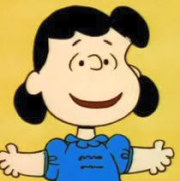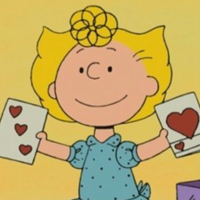Charlie Brown tipo de personalidade mbti
Personalidade
"Que tipo de personalidade é Charlie Brown? Charlie Brown é um tipo de personalidade INFP em mbti, 6w5 - sp/so - 694 em enneagram, RLUAI em Big 5, EII em sociônicos."
Ehh, I am not absolutely committed to this typing, but I see Charlie asking variations of “what is important to me/what do I desire/what do I bring to the table,” which are more Fi-driven questions, far more often than he asks, “what makes sense to me” (Ti) or “how do others esteem me (Fe)?” I personally see him getting far more excited about figuring out what he values than in figuring out what makes sense to him. Charlie is constantly shaming himself for illogical reasons because he hasn’t lived up to his own standards or because he feels that he has let others down. His focus is typically on his own feelings though, not on the feelings of others. For example, in A Charlie Brown Christmas, Charlie is upset, saying in his very first line: “I think there must be something wrong with ME, Linus. Christmas is coming, but I’m not happy. I don’t feel the way I’m supposed to feel. I just don’t understand Christmas, I guess. I like getting presents and sending Christmas cards and decorating trees and all that, but I’m still not happy. I always end up feeling depressed.” Notice how many times he brings up his own emotional states, and his concern that there is something wrong with him because he doesn’t understand why he doesn’t feel the right way about Christmas. He’s not as concerned that others think there’s something wrong with him or that he simply doesn’t understand, but is most deeply concerned that there’s something wrong with him. The whole special to my mind involves him exploring and then rejecting the things other people value or believe is true about Christmas as he seeks to understand what he values about it. Think about how often in general he focuses on his own emotional states as well. “I never knew I had so many faults. I never felt so completely miserable.” Charley is very emotionally fixated and self-aware. I also think of the ratio of moral/personal judgments Charlie makes compared to objective ones, and find he is far more likely to make a subjective value statement than a subjective logical one. “That’s one thing you should never do. Never sniff someone’s root beer.” That’s it. No justification with logic or reference to the group. Just, you should not do this! “Well, if it’s important, a person should never turn down a big honor. … Besides, [Lucy] wouldn’t try to trick me on a traditional holiday.” Again, unjustified value judgements of what a person ought to do. When Lucy encourages Charley to give an opposing baseball player “the ol’ beanball,” Charlie replies, “No, I can’t do that… It wouldn’t be right.” Again, no explanation, just a personal value judgment.
Biografia
Personalidades relacionadas

Snoopy

Lucy van Pelt

Linus van Pelt

Schroeder

Patricia “Peppermint Patty” Reichardt

Marcie

Sally Brown

Woodstock















